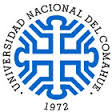JavaScript is disabled for your browser. Some features of this site may not work without it.
| dc.creator | Gutauskas, Andrea | |
| dc.creator | Gallo, Graciela | |
| dc.creator | Zanfardini, Marina | |
| dc.date | 2020 | |
| dc.date.accessioned | 2023-07-07T13:15:05Z | |
| dc.date.available | 2023-07-07T13:15:05Z | |
| dc.identifier.issn | 2683-698X | es_ES |
| dc.identifier.uri | http://rdi.uncoma.edu.ar/handle/uncomaid/17317 | |
| dc.description.abstract | Desde marzo 2020 el turismo mundial se ha visto alterado por la pandemia generada por el COVID-19. El avance de esta enfermedad ha llevado a la cuarentena preventiva y obligatoria en muchos países del mundo y también en Argentina, pausando la actividad turística y generando incertidumbre en cuanto a las formas de consumo turístico futuro luego de la pandemia. De acuerdo a estudios realizados en los últimos meses, el consumo turístico post pandemia estará vinculado expresamente al turismo rural y de naturaleza por tratarse de servicios ofrecidos en ambientes amplios, que permiten el distanciamiento social recomendado sin afectar el disfrute y que, en esencia, promueven la vinculación con el entorno natural y la cultura local. Ambas características están presentes en estas propuestas de turismo, a lo que se suma que se encuentran alineadas con los deseos de los jóvenes y las familias para sus viajes post cuarentena. De este estudio surge además que el segmento con más intención de viajes es el de los millennials o Generación Y - el grupo de consumidores formado por los jóvenes nacidos entre principios de los años 80 y principios de los 2000-. Este trabajo presenta una revisión del contexto actual, del concepto de turismo rural, de la teoría generacional -en especial de los millennials- y del concepto del viaje de consumo turístico. Como así también los resultados de una investigación sobre la caracterización del VCT de viajeros millennials del Alto Valle de Río Negro y Neuquén y de CABA. | es_ES |
| dc.description.abstract | Since March 2020 world tourism has been altered by the pandemic generated by COVID-19. The advance of this disease has led to preventive and mandatory quarantine in many countries of the world and also in Argentina, pausing tourist activity and generating uncertainty regarding the forms of future tourist consumption after the pandemic. According to studies carried out in recent months, post-pandemic tourist consumption will be expressly linked to rural and nature tourism, as these are services offered in wide environments, which allow for recommended social distancing without affecting enjoyment and, in essence, promote the link with the natural environment and local culture. Both characteristics are present in these tourism proposals, in addition to the fact that they are aligned with the wishes of young people and families for their post-quarantine trips. From these studies it also appears that the segment with the most travel intention is that of millennials or Generation Y - the group of consumers formed by young people born between the early 1980s and the early 2000s. This work presents a review of the current context, of the concept of rural tourism, of generational theory -especially of millennials- and of the concept of tourism customer journey. As well as the results of a research about the characterization of the VCT of Millennial travelers from Alto Valle de Río Negro y Neuquén) and from CABA. | es_ES |
| dc.format | application/pdf | es_ES |
| dc.format.extent | pp. 25-42 | es_ES |
| dc.language | spa | es_ES |
| dc.publisher | Escuela Argentina de Negocios. Instituto Universitario | es_ES |
| dc.relation.uri | http://repositorio.ean.edu.ar:8080/handle/123456789/137 | es_ES |
| dc.rights | Atribución-NoComercial-CompartirIgual 2.5 Argentina | es_ES |
| dc.rights.uri | https://creativecommons.org/licenses/by-nc-sa/2.5/ar/ | es_ES |
| dc.source | II Encuentro Internacional EAN 2020. Tomo IV | es_ES |
| dc.source | VI Jornadas de Investigación. II Seminario de Acción comunitaria | es_ES |
| dc.subject | Turismo | es_ES |
| dc.subject | Turismo Rural | es_ES |
| dc.subject | Millennials | es_ES |
| dc.subject | COVID-19 | es_ES |
| dc.subject | Rural tourism | es_ES |
| dc.subject.other | Turismo | es_ES |
| dc.title | ¿Serán los millennials un segmento atractivo para el turismo rural post pandemia? | es_ES |
| dc.type | Articulo | es |
| dc.type | article | eu |
| dc.type | acceptedVersion | eu |
| dc.description.fil | Fil: Gutauskas, Andrea. Universidad Nacional del Comahue. Facultad de Turismo; Argentina. | es_ES |
| dc.description.fil | Fil: Gallo, Graciela. Escuela Argentina de Negocios. Instituto Universitario; Argentina. | es_ES |
| dc.description.fil | Fil: Zanfardini, Marina. Universidad Nacional del Comahue. Facultad de Turismo; Argentina. | es_ES |
| dc.description.fil | Fil: Zanfardini, Marina. Universidad Nacional del Comahue. Instituto Patagónico de Estudios de Humanidades y Ciencias Sociales; Argentina. | es_ES |
| dc.description.fil | Fil: Zanfardini, Marina. Consejo Nacional de Investigaciones Científicas y Técnicas; Argentina. | es_ES |
| dc.cole | Artículos | es_ES |



